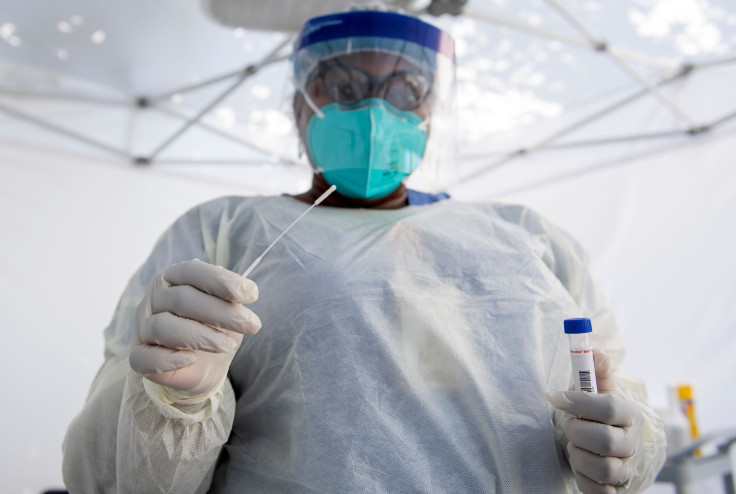New COVID Delta Variant: These 8 States Have Detected The More Infectious AY.4.2 Strain
A faster-spreading sub-variant of the Delta variant known as AY.4.2, or the Delta Plus strain, has been detected in at least eight states across the U.S.
At least one case of the new AY.4.2 variant has been found in California, Florida, Maryland, Massachusetts, Nevada, North Carolina, Rhode Island, and Washington, as well as the District of Columbia, CBS News reported.
According to the World Health Organization, the AY.4.2 variant has also been detected in at least 42 countries.
While the AY.4.2 mutant, which was first detected in the U.K. in July, has been found to be faster spreading than the Delta variant, it is not thought to be a strain of concern, according to health officials.
The variant has not been shown to cause more severe illness, and current COVID vaccines have shown to be effective against the strain, health officials have said, according to CBS News. However, some data indicated that it can cause more severe illness in unvaccinated people, although this has not been confirmed, according to the Centers for Disease Control and Prevention.
When it comes to the AY.4.2 variant, Dr. Summer Galloway, executive secretary of the U.S. government's SARS-CoV-2 Interagency Group, told CBS News that little is known about the variant. However, it appears to pose a low risk to Americans.
“Right now, I think there's not a lot that we know. But in terms of the risk that it poses to public health, the prevalence is very low in the U.S. and we don't really anticipate that the substitutions [of AY.4.2] are going to have a significant impact on either the effectiveness of our vaccines or its susceptibility to monoclonal antibody treatments,” Galloway said.
The CDC estimates that the AY.4.2 variant accounts for less than 0.05% of cases of COVID in the U.S. for the last several weeks, an agency spokesperson told the news outlet.
Together, the Delta variant and sub-lineage variants make up virtually 100% of the COVID cases in the U.S. and they have for several months, the CDC said.
While the AY.4.2 Delta Plus variant is being watched closely, health authorities say they are already on the lookout for new variants on the horizon.
Galloway added, “We have teams that are constantly reviewing the genetic sequence data and looking for blips, an increase in a certain proportion or just something that's completely new.”

© Copyright IBTimes 2025. All rights reserved.





















